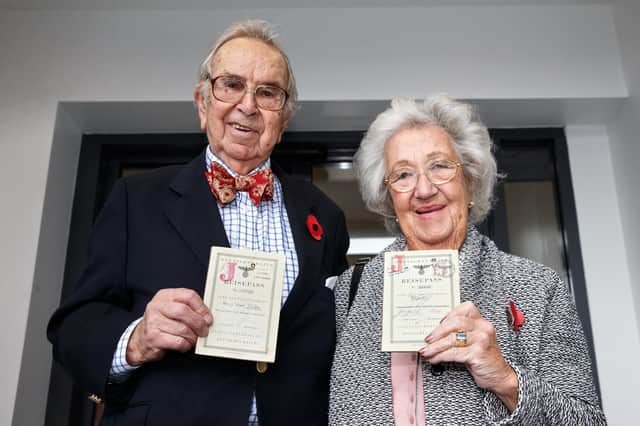Chitra Ramaswamy's Homelands shows what humanity stands to gain from the stories of refugees – Laura Waddell


Homelands is an account of Ramaswamy’s “unlikely” friendship with Henry Wuga, a Jewish German man born in 1924, now in his 90s, who arrived in the UK by Kindertransport in 1939.
Despite their differences, Ramaswamy, who encountered Wuga in her work as a journalist, feels a strong pang of recognition as he recollects the immigrant experience.
Advertisement
Hide AdAdvertisement
Hide AdLife wasn’t easy for a German teenager in Second World War Britain. Labelled a dangerous alien, Wuga was interred for a time in camps alongside Nazi sympathisers holding the anti-semitic beliefs he’d fled his home to escape – a lesser acknowledged side to wartime Britain.
Meanwhile, events in the author’s own life – bringing up young children, facing the mortality of a parent – prompt her to reflect on lifetimes as the sweeping arcs that they are.
She reflects on her parents’ experiences of emigrating from Bangalore to England, and what home means to her. “Ours is the classic immigrant conundrum: too Indian in Britain, too British in India. Our true home lies in this bewilderness.” She adds, “in the future I will start to understand that belonging lies in the search”.
Belonging lies in the details, too, as Ramaswamy skilfully pulls out particularly poignant moments from the Wugas’ lives. I understand quickly why she has become so fond of this sweet couple, who met at “the house on the hill”, a refugee centre on Sauchiehall Street since swallowed up by redevelopment.
I enjoy reading about its “library, theatre group, meeting rooms and a canteen famous for its proper coffee and cheap meals”.
There is a spectacular anecdote about young music-loving Henry defiantly determined to attend his favourite opera – as a 13-year-old boy living in Nuremberg in 1937. “It was my fight against Hitler! It’s unusual, but that’s how it was.”
Just a couple of years later, this spirited young man would receive letters from his widowed mother, hoping they’d be reunited one day.
Homelands is a wonderful tribute to a fascinating friendship. In the depth of its empathy, it also demonstrates what humanity stands to gain from listening to the stories of refugees.
Comments
Want to join the conversation? Please or to comment on this article.

